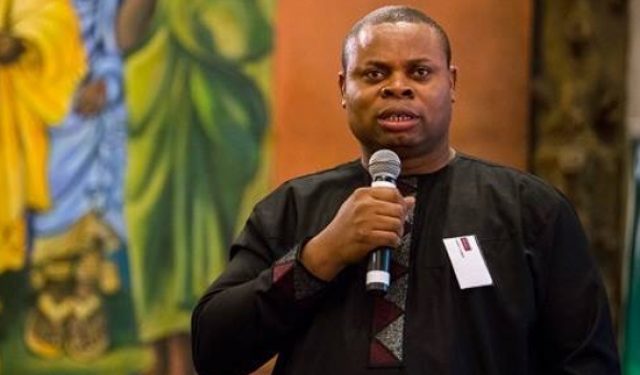Supreme Court Rules on Birthright Citizenship

The legal landscape surrounding President Donald Trump's executive order to end birthright citizenship remains in flux, despite a recent Supreme Court ruling that delivered a significant procedural victory to the Republican administration. This ruling, which limited the authority of individual judges to issue nationwide injunctions, has sent the challenging cases back to lower courts, leaving the ultimate fate of the president's contentious policy uncertain. Immigrant advocates, meanwhile, have vowed to continue their fight to uphold birthright citizenship, a principle rooted in over a century of precedent.
Birthright citizenship, often referred to as 'jus soli' or 'right of the soil,' dictates that anyone born in the United States is automatically an American citizen, irrespective of their parents' legal status. This practice traces its origins to the post-Civil War era, specifically the ratification of the Constitution's 14th Amendment. The amendment unequivocally states: 'All persons born or naturalized in the United States and subject to the jurisdiction thereof, are citizens of the United States.' This was initially enacted, in part, to guarantee citizenship for Black people, including former slaves. The principle was further solidified by the landmark 1898 Supreme Court decision in *United States v. Wong Kim Ark*, which explicitly ruled that the 14th Amendment grants citizenship to anyone born on U.S. soil, with only a handful of narrow exceptions, such as children born to foreign diplomats or enemies during hostile occupation. The U.S. is one of approximately 30 countries globally, predominantly in the Americas including Canada and Mexico, that adhere to birthright citizenship.
President Trump's executive order, signed in January, aims to deny citizenship to children born to individuals who are residing in the U.S. illegally or temporarily. This initiative is a core component of his stringent immigration agenda, as he has repeatedly characterized birthright citizenship as a 'magnet for illegal immigration.' Trump and his supporters base their argument on a specific phrase within the 14th Amendment – 'subject to the jurisdiction thereof' – contending that it allows the U.S. to deny citizenship to children of undocumented immigrants. They assert that children of noncitizens are not fully 'subject to the jurisdiction' of the United States and therefore are not entitled to automatic citizenship.
However, a series of federal judges have consistently rejected Trump's interpretation, universally ruling against the administration. Judges like U.S. District Judge John Coughenour in Seattle and U.S. District Judge Deborah Boardman in Greenbelt, Maryland, have deemed the executive order 'blatantly unconstitutional' and noted that 'no court in the country has ever endorsed' Trump's interpretation of birthright citizenship, leading them to issue nationwide injunctions to prevent the order from taking effect.
The Supreme Court's recent ruling, delivered by a divided court, marked a significant win for the Trump administration, not on the constitutional merits of birthright citizenship, but on the *scope* of judicial relief. The high court determined that individual district court judges lack the broad authority to issue nationwide injunctions, thereby checking what the administration perceived as an usurpation of presidential power. The administration strategically opted to challenge the scope of these injunctions rather than the underlying legal merits of the executive order, a decision that legal experts like Loyola Law School professor Jessica Levinson noted 'quite clearly paid off.' Despite this procedural victory, the conservative majority left open the possibility that the birthright citizenship changes could remain blocked nationwide, emphasizing that the Court did not address the constitutionality of Trump's order itself. Attorney General Pam Bondi expressed confidence that the high court would ultimately side with the administration on the merits of the case in future proceedings.
As the cases are now remanded to the lower courts, questions and uncertainty loom regarding the next steps. The executive order remains blocked for at least 30 days, allowing time for courts and parties to determine how to tailor orders to comply with the new ruling. While the ruling makes it more challenging, it leaves open the possibility for groups challenging the policy to still obtain nationwide relief through class-action lawsuits, provided they can secure certification as a nationwide class. However, obtaining such relief through class actions is notoriously difficult, as courts have erected significant hurdles over the years. Suzette Malveaux, a Washington and Lee University law school professor, underscored that a class action is not an 'easy, breezy way of getting around this problem.' Justice Sonia Sotomayor, in her dissenting opinion, urged lower courts to 'act swiftly on such requests for relief and to adjudicate the cases as quickly as they can' to enable prompt review by the Supreme Court for 'policies as blatantly unlawful and harmful as the Citizenship Order.'
Opponents of Trump's order have voiced concerns that without nationwide relief, the ruling could lead to a 'patchwork of policies' across different states, creating chaos, inequality, and fear. Krish O’Mara Vignarajah, president and CEO of Global Refuge, a nonprofit supporting refugees and migrants, asserted that by denying lower courts the ability to uniformly enforce a right that has been 'settled constitutional law for more than a century,' the Court has inadvertently invited disorder. The fundamental debate over birthright citizenship in the United States thus continues, with procedural victories shifting the legal battleground but not resolving the core constitutional questions.
You may also like...
Diddy's Legal Troubles & Racketeering Trial

Music mogul Sean 'Diddy' Combs was acquitted of sex trafficking and racketeering charges but convicted on transportation...
Thomas Partey Faces Rape & Sexual Assault Charges

Former Arsenal midfielder Thomas Partey has been formally charged with multiple counts of rape and sexual assault by UK ...
Nigeria Universities Changes Admission Policies

JAMB has clarified its admission policies, rectifying a student's status, reiterating the necessity of its Central Admis...
Ghana's Economic Reforms & Gold Sector Initiatives

Ghana is undertaking a comprehensive economic overhaul with President John Dramani Mahama's 24-Hour Economy and Accelera...
WAFCON 2024 African Women's Football Tournament

The 2024 Women's Africa Cup of Nations opened with thrilling matches, seeing Nigeria's Super Falcons secure a dominant 3...
Emergence & Dynamics of Nigeria's ADC Coalition

A new opposition coalition, led by the African Democratic Congress (ADC), is emerging to challenge President Bola Ahmed ...
Demise of Olubadan of Ibadanland
Oba Owolabi Olakulehin, the 43rd Olubadan of Ibadanland, has died at 90, concluding a life of distinguished service in t...
Death of Nigerian Goalkeeping Legend Peter Rufai

Nigerian football mourns the death of legendary Super Eagles goalkeeper Peter Rufai, who passed away at 61. Known as 'Do...




